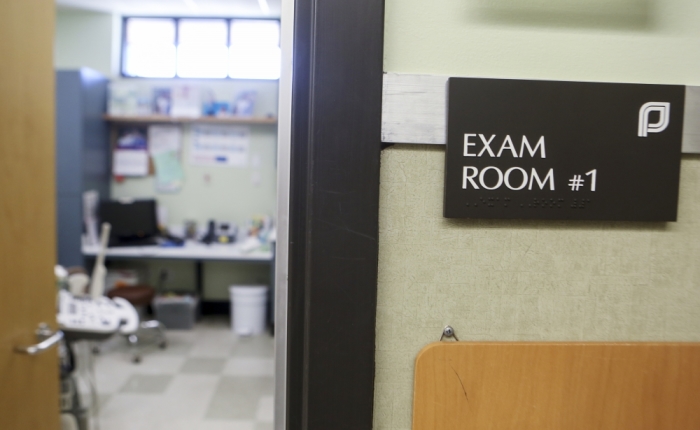Federal judge denies Biden DOJ's emergency demand to block Texas' 6-week abortion ban

A federal judge has rejected the Biden administration’s emergency request to block a Texas abortion law, marking the latest setback for abortion advocates seeking to overturn the pro-life measure.
In a one-page opinion released Thursday, U.S. District Judge Robert Pittman rejected the request of the U.S. Department of Justice to issue a temporary restraining order or preliminary injunction against Texas’ Senate Bill 8. The law, which went into effect Sept. 1, bans abortion after a fetal heartbeat can be detected, usually around six weeks gestation. It also allows private citizens to sue individuals who perform abortions and those who help women obtain illegal abortions.
“This case presents complex, important questions of law that merit a full opportunity for the parties to present their positions to the Court,” wrote Pittman, appointed by former President Barack Obama to serve as a judge on the U.S. District Court for the Western District of Texas. “Accordingly, IT IS ORDERED that the United States’ Opposed Motion for Expedited Briefing Schedule … is DENIED.”
Pittman’s ruling comes two days after the DOJ filed its motion for a temporary restraining order or preliminary injunction against the Texas law. Accusing Texas of preventing “women from exercising their constitutional rights,” the DOJ’s request asserted that “this relief is necessary to protect the constitutional rights of women in Texas and the sovereign interest of the United States in ensuring that its States respect the terms of the national compact.”
The DOJ cited the U.S. Supreme Court cases Roe v. Wade, which determined that the U.S. Constitution protects “a woman’s decision whether or not terminate her pregnancy” and Planned Parenthood v. Casey, which reaffirmed “a woman’s right to terminate her pregnancy before viability” as evidence that SB 8 was unconstitutional. The term viability refers to a baby's ability to survive outside the womb.
The decision by Pittman to deny the DOJ’s request to strike down the law is the latest setback pro-abortion activists have faced when attempting to challenge the law using the judicial branch. Two weeks ago, the Supreme Court rejected a request filed by abortion groups to block the law.
A majority of justices on the court agreed that their decision to allow the law to remain in place “is not based on any conclusion about the constitutionality of Texas’ law.” They argued that the plaintiffs did not have a strong enough legal case to justify judicial intervention because enforcement of the law was left to private citizens rather than state officials.
Attorney General Merrick Garland first announced the U.S. government’s intentions to challenge the law in court at a press conference last week. In a filing submitted Sept. 9, the DOJ sought a “declaratory judgment that S.B. 8 is invalid under the Supremacy Clause and the Fourteenth Amendment, is preempted by federal law, and violates the doctrine of intergovernmental immunity.”
Tuesday’s filing was an attempt to convince a judge to block the law immediately, before both the U.S. and Texas had a chance to make their arguments in court. While all attempts to put the law on hold have failed thus far, the legal battle surrounding Texas’ SB 8 will continue for the foreseeable future.
On Wednesday, before deciding whether or not to grant the DOJ’s Tuesday request to immediately put SB 8 on hold, Pittman scheduled a hearing on the matter for Oct. 1.
Pittman “agreed to the state’s request to hear arguments before ruling,” according to The Texas Tribune.
As litigation over SB 8 continues, congressional Democrats are vowing to codify Roe v. Wade into federal law in an attempt to nullify pro-life laws passed at the state level. House Speaker Nancy Pelosi, D-Calif., vowed that upon returning from recess, “the House will bring up Congresswoman Judy Chu’s Women’s Health Protection Act to enshrine into law reproductive health care for all women across America.”
Public opinion polling indicates that the American people remain divided in their opinions on SB 8. A poll conducted by Rasmussen Reports earlier this month found that 46% of likely voters approve of the measure while 43% disapprove. However, 46% of respondents expressed support for President Joe Biden’s vow to “launch a whole-of-government effort ... to ensure that women in Texas have access to safe and legal abortions.”
Polling conducted exclusively among Texans revealed slightly stronger support for banning abortions after six weeks gestation. In April, before SB 8 was signed into law, 49% of Texans surveyed told pollsters at the University of Texas at Austin that they supported banning abortions more than six weeks into a pregnancy while 41% opposed.
The litigation surrounding SB 8 comes as the Supreme Court is scheduled to rule on the constitutionality of Mississippi’s 15-week abortion ban in its upcoming term, which begins next month. A ruling in favor of the state of Mississippi, which is asking the justices to uphold the ban, would significantly weaken the precedent set by Roe and Casey and give states more latitude to regulate abortions before viability.
Ryan Foley is a reporter for The Christian Post. He can be reached at: ryan.foley@christianpost.com





























